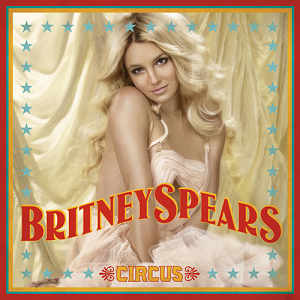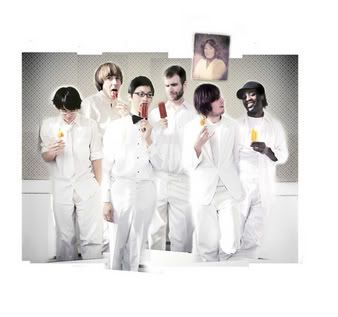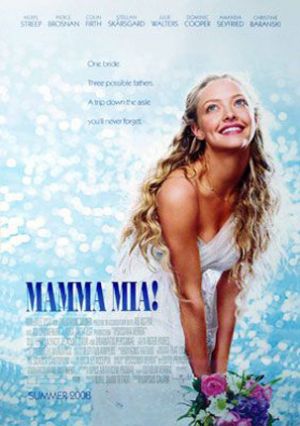
(Interview by Laura Snapes and Mike Mantin, article by Laura Snapes)
“The only real conversation I had whilst on tour with Neil Young involved woodfired pizza, in Everett, Washington. It was a really nice day so they set up catering outside, and he came over. He had his mouth full, and goes, ‘Man! Fucking great pizza!’ and I said, ‘It is awesome isn’t it?’. ‘Fucking great!’ And that was about it!” laughs Chris Walla, on the afternoon of Death Cab For Cutie’s Colston Hall date.
It takes balls to open for a legendary musician whose career has spanned almost half a century, especially when you consider that to diehard Young crowds, you’re the enemy whose every minute on stage is a minute that you’re keeping them from seeing their idol. However, Young’s fans could do worse than to realise that their stories aren’t a million miles apart – following the success of Harvest in 1972, Neil Young and Crazy Horse almost imploded due to drummer Danny Whitten’s drug abuse and subsequent overdose. While Death Cab’s breakdown wasn’t nearly so fatal, it nearly spelled the end for the Seattle-based band.
“We’ve been doing this for a long time now, about 11 years. We almost self-destructed about six years ago because we couldn’t keep the balance right. We all learned after that series of experiences – we all decided explicitly, verbally and consciously that we just didn’t want to operate like that, and to make sure that everyone has the space they need. We’re all really good friends, but sometimes it takes having a total blowout to remind you of that.” Worries about his thin, reedy voice plagued Young for years, but it went on to become as much of his identity as DCFC frontman Ben Gibbard’s instantly recognisable intonation – later that evening, singing ‘Title and Registration’ (from 2003’s Transatlanticism) during the encore, his voice becomes a warm approximation of his idiosyncratic Washington drawl, and a bitter spit singing, “you were so condescending” on ‘Photo Booth’.
But one aspect that certainly differentiates between the two is the economic musical climate from which they were respectively born. Although ‘Narrow Stairs’, Death Cab’s latest record, reached number one on the Billboard charts in its debut week of release, attracting claims of ‘selling out’ from so-called fans (abetted by their signing to Atlantic in 2004), the implications of a number one album are contrary to the assumptions of many.
“People aren’t buying records in the quantities that they used to, there is so much entertainment, that having a number one record doesn’t guarantee much in terms of fame and fortune anymore, which I am perfectly fine with – I can’t imagine what it would have been like to be Bon Jovi in 1987, that seems miserable to me! But saying that, it’s a really big milestone, and an amazing thing to have accomplished, but it’s not one of those benchmarks that has any weight to any of us.
“It wasn’t nearly as important or as big and gravitational as being on Saturday Night Live was. That was a big deal, we got really excited and totally freaked out about it.” Until recently, SNL and its band of merry mirth-makers was largely unknown among English audiences, save for Tina Fey’s turn writing and starring in ‘Mean Girls’. That is, until a certain nuclear Mrs Palin exploded onto the political scene faster than you can say, ‘we have the facts (unlike Palin), and we’re voting Obama’. But in an election where the youth vote was such a critical one, was this kind of commentary useful in turning the campaigns into even more of a cultural phenomenon?
“There’s not a lot of commentary to it any more. It’s basically just straight impressionism. Nobody’s pointing out any subtleties about any of these people that you couldn’t have already gleaned from watching press conferences, or in Sarah Palin’s case, the lack thereof.” Walla pulls his green woolly hat down over his eyes, grimacing. “That made me kinda sad, especially when some people saw the sketches before they saw Palin.”
Walla started blogging about the election for Rolling Stone over the summer, attending and performing at the Democratic Convention in Denver, along with Ben, and Rilo Kiley’s Jenny Lewis. It comes as no surprise that every point of conversation we touch on comes back to the election – on November 2nd, two days before election day, Chris turned 33, and got “everything that I could have wanted, save for three senate seats and two congressional seats.” Ensconced in over a year’s whirlwind – or rather a hurricane – of touring and producing without a break, the election pulled his thoughts home daily wherever he was in the world.
“I’m totally in withdrawal right now, it’s really freaking me out! Now that the election’s over, I don’t have anything to obsess over from day to day! The first two and a half hours of my day, every day, was spent trawling political blogs.” Despite this boyish yet utterly informed exuberance for all things election and Obama (Walla wrote for Rolling Stone that, “It’s simple: We much elect him president. I very much doubt I’ll live to see another leader who fits the zeitgeist so perfectly.”), the band’s politics don’t pervade their performance, unlike many who use the stage as their own personal (and often misinformed) soapbox.
Live, the band is a measured tour de force, paying equal heed to their three most recent albums, and delighting by delving into tracks from their first three records and EPs. For ‘We Laugh Indoors’ from 2000’s ‘Forbidden Love EP’, The band play momentarily to the back of the stage, accompanied by an orchestra of facial expressions – Ben almost visually goading the others, Chris intently focusing on his guitar, tension flashing across his face when he jabs the foot pedals, drummer Jason squinting at every beat, and bassist Nick Harmer rocking the fuck out – the song adopting a little of the Krautrock spaciness which smatters ‘Narrow Stairs’.
“We’ve always been Krautrock fans, at some points latent, and at some points right here (taps forehead). Jason especially is obsessed with Jaki Liebezeit (the original drummer of Can) – his last name literally means “love time” which is pretty funny. Kraftwerk is part of the reason I play music, and that probably doesn’t come through so much in what we do. That linear minimalism is something, more than anything else probably just in form, is something that we’re drawn to.”
That minimalism came through starkly on ‘I Will Possess Your Heart’, released to radio in March 2008. An eight-minute “Can Jam”, as Chris previously termed it, fans and critics alike were shocked to hear their favourite dependable indie band breaking experimental territory. Despite a proliferation of “WTF?!” from some fans, the band didn’t stop to worry about changing their well-known magic formula.
“When we first started talking about Narrow Stairs, it was still a bunch of instrumental basic tracks, it was really bloody and weird, and as we finished it, it got less weird. By the time that the lyrics got written, and the vocals ended up on it, it’s pretty much a Death Cab record,” he lilts matter-of-factly. “We’re all lovers of pop songs, it’s what we do, and I think that for us, even at the points where we tried intentionally to be bloody and ridiculous and over the top, it’s not really in our nature. Somehow or another, whatever we did individually lead us to guitars and destruction pedals, and making a big bloody mess when we finally got back into the studio!”
The members of Death Cab are almost as well known apart as together. Together with Jimmy Tamborello of Dntel, Ben Gibbard makes up The Postal Service (whose unannounced second album might be one of the most hotly anticipated “indietronica” records ever). Jason taught Smoosh how to drum, and Chris has produced albums for The Decemberists, Tegan and Sara (and will be working on their next record), and his own solo effort, ‘Field Manual’, amongst others. After the experience of committing ‘Plans’ to all-digital technology, he said that he wanted to take a break from producing Death Cab records, but it was working with an almost unknown, young prog-rock band from St Louis that convinced him he was the man for the job.
“I made a record with a band called So Many Dynamos - they’re really into Battles, early Trans Am stuff. They tracked that whole thing pretty much live, which was something I hadn’t done in a long time. It was such a screaming success, such a good record! So I started to feel like that was something I could bring to my band, something that we’d never tried. We set out a bunch of rules – nobody stops a take under any circumstances, and if we can’t get something done from top to bottom in two days, we have no business recording it. And it all stays on tape. If there’s cutting and pasting, it’s physical cutting and pasting.”
With his skills as a producer in constant demand, and Death Cab’s star on a seemingly exponential ascent, it’s not hard to imagine a future where young bands supporting DCFC are hanging on Walla’s every pizza-muffled word too.
On political songs…
It’s not exactly a political song, but a patriot song that every kid in America knows all the words to, and it’s ‘This Land Is Your Land’, a Woody Guthrie song, it’s pretty amazing. Ted Leo’s (and the Pharmacists) got some killers. A few are specific to English or Australian politics, which I’m really into, but in terms of modern relevant American political songs, I think that he has some of the best, and there’s particularly a song called ‘Counting Down the Hours’, from ‘Shake the Sheets’, that’s totally devastating, so beautiful and so well written. That guy’s my hero, he’s amazing, so good!
What they get up to on the tourbus…
I catch up on TV shows, I binged my way through all four or five seasons of Lost, in a matter of…god, that probably took 11 days! It’s kind of…uh…I don’t know what’s going on! And anyone who claims to know what’s going on is lying! (laughs) Ben is a voracious reader, and I have so much envy, moving in on jealousy for that, because I can’t finish anything. I carry around, like, five books at a time, but I’ve been carrying around the same five hoping I’ll get through the first one for about a year now. On this tour, every three days, I’ll pull out ‘The Amazing Adventures of Kavalier and Clay’ by Michael Chabon, and crack away at about ten pages, then fall asleep. Or I’ll put it away and watch Lost or something!
On producing…
I just try and make sure that if somebody’s excited about something, that there’s a microphone ready to get it, to keep the feeling of “anything can happen at any time” – if you’re into something, pick up an instrument and let’s do it, that’s cool. So trying to keep things moving, and also to try and foster this idea that nothing is sacred. If we put a ton of time and a ton of work into something, and four days later somebody’s not feeling something, and wants to veto it, that’s fine. We don’t have to erase it, but to take the reel off and put it in the other room.
On intelligent American satire…
‘The Colbert Report’ is pretty amazing. The thing that Colbert has nailed is the fact that his vehicle is the Fox news machine, the fact that he is playing the part of a pundit, it’s a Bill O’Reilly send-up, and it’s great, he’s so good at it, and he’s so smart. He’s kind of one of my heroes. When all we were fucking hearing about was Joe the Plumber, for a week and a half, it was the only thing coming out of John McCain or Sarah Palin’s mouth, he did this amazing thing – it was a Stephen Colbert comment, mock-supporting McCain for bringing Joe the Plumber to the people, and he said something like, “I, Stephen Colbert, am simply longing for a simpler time when we can identify everyone on the streets by the hats they wore. When people didn’t need real identities, last names…!”
On album art…
I met Emy Storey, who designed ‘Narrow Stairs’, by way of Tegan and Sara. She was really fun to work with, she works so fast, and gets so excited! The first time I saw it I gasped, and took it to everybody. They were like, “huh?”, but on second look, “yes!” It’s noisy and chaotic, but it’s not off-putting. There’s something really inviting about it to me, and I still can’t figure out what that is. It’s a collage and computerised. She was really intending that it’d be something buried in the cassette version of the record, if anything at all. It’s a really shitty little low-res jpeg, and she was mortified when we blew it up as a stage backdrop, the pixels are huge!



.JPG)





















